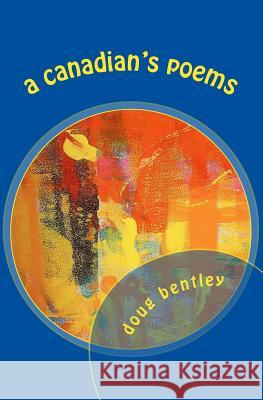A Canadian's Poems » książka
A Canadian's Poems
ISBN-13: 9781499696455 / Angielski / Miękka / 2014 / 96 str.
Revised You're about to discover one of the best kept secrets in Canadian English Poetry today Excerpt. (c) Reprinted by permission. All rights reserved. From the Preface to the poems] ONE MIGHT EXPECT THAT a book of poetry titled a canadian's poems would comprise only poems about Canada. This is not the case here. In our new global theater of "www." national identities and cultures no longer define artistic materials. The objects of art are now global. The web has made it possible for poets from all countries to come together and share their cultures and insights with each other. Each country brings its own unique mode of expression to the mix, as well as content. This multicultural mingling generates a new distinct genre. I call it global English poetry. The web also generates a new appreciation of English poetry and English tongues worldwide. Man has used his vocal chords to communicate with for hundreds of thousands of years. There are now hundreds of millions of different words in use on our planet. Billions of us utter trillions of them every day, both in spoken and written forms. Our original tongue, of course, disappeared long, long, long ago. So speech is innate; Writing is not. Writing is a recent invention. The current, earliest known forms of it are cave drawings, found all over the world. They're only a few tens of thousands of years old. It is true that, when archaeological digs penetrate more than a few meters into the ground astonishingly different artifacts will be uncovered. But that might not happen for centuries. English is a ten seconds to midnight latecomer on the linguistic stage. Originating in a small area in present-day Germany less than sixteen centuries ago, oral English has evolved and spread everywhere, precociously. But written English did not receive its current brand of codified grammar until the mid nineteenth century. Renowned scholars of that time were paid handsomely to generate grammatical rules. So, they overindulged. Our current standard form did not exist before then. Our greatest writers, Shakespeare and Milton, never studied grammar. It didn't exist in any code until at least a century after them. Neither are there any grammar books on oral English usage at all. More than 1,000 million people currently use English. There are no more than 300 million users of English in the USA, and 60 million in the UK. The core branches of the tongue, they have generated many precocious offspring. International English, used by more than 600 million people today, is its new norm. International English is a complex of hybrids created by users whose mother tongues are not English. Often their mother tongues are very different from English. Effects upon core English ie. American & British brands] of these collisions are profound. In our new chatterverse of www., ruled by algorithms not phonetics, there's no past, no future, no localized position. Everything is here, now, everywhere. So, complex, fragmented verb formations and tenses implode into present simple reality. The A or B positional logic of prepositions becomes illogical, and unnecessary. In everywhere there is no longer any pre-position anywhere. END OF EXCERPT
Zawartość książki może nie spełniać oczekiwań – reklamacje nie obejmują treści, która mogła nie być redakcyjnie ani merytorycznie opracowana.











